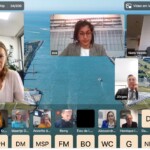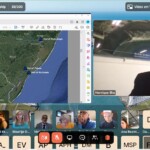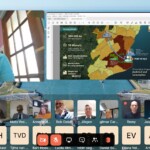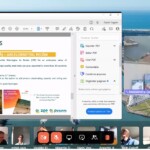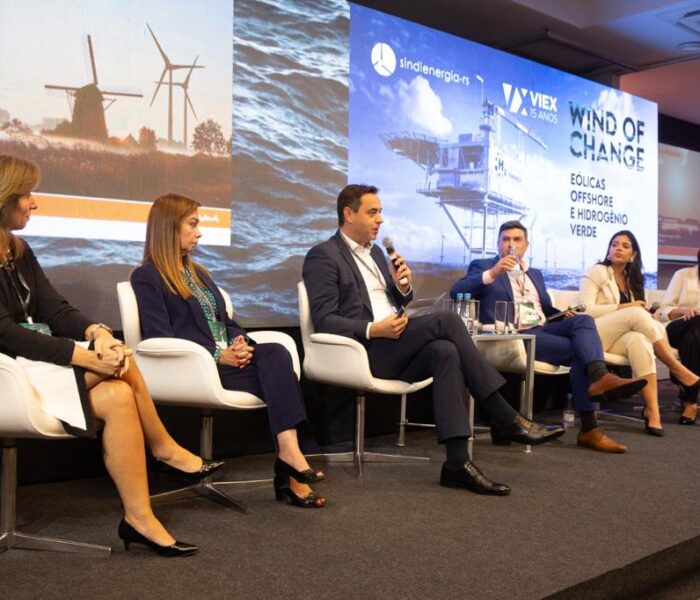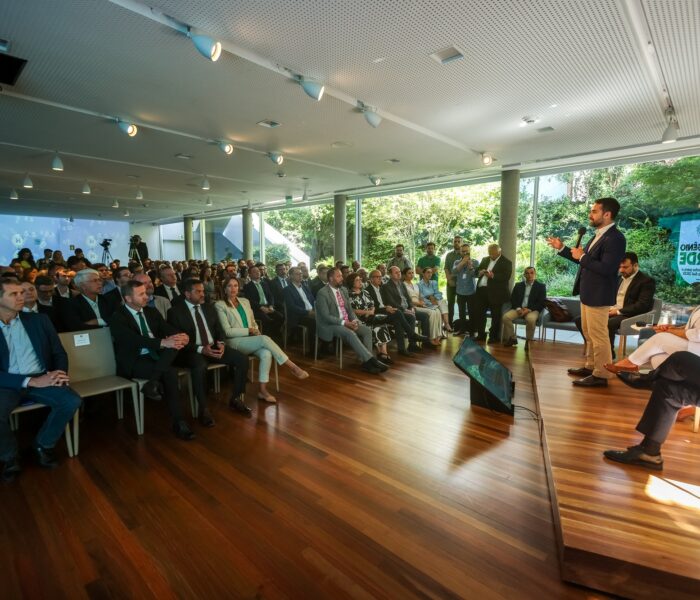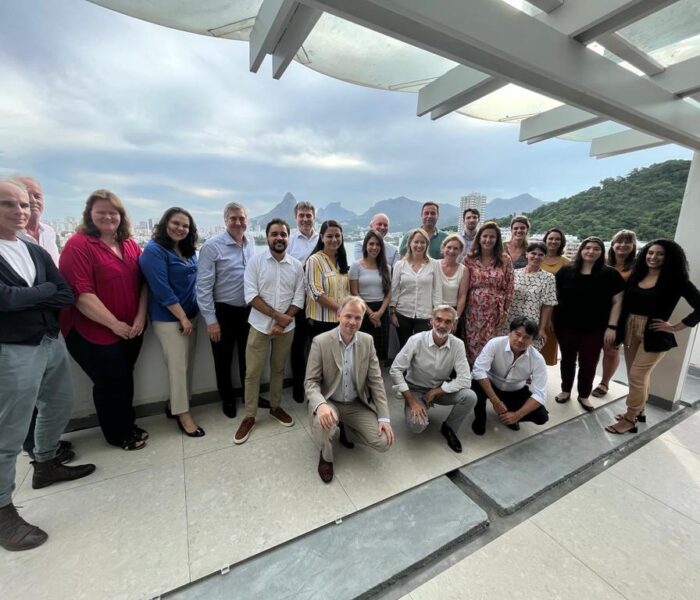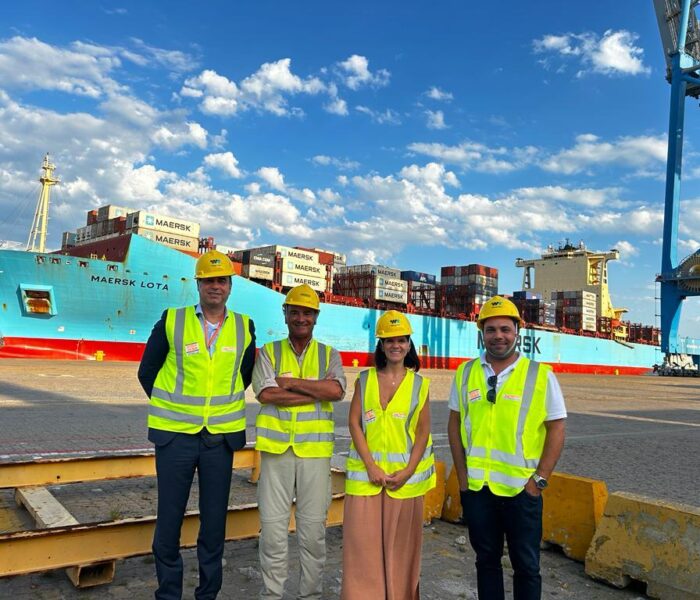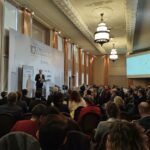Rotterdam Partners together with the Port of Rotterdam, the Economic Diplomatic Network, Wind & Water Works, and the Netherlands Enterprise Agency (RVO) organized on Tuesday (4th) an online seminar for companies that are interested in port development, port logistics and port related energy projects (offshore wind and hydrogen) in Brazil. The seminar was the first activity on behalf of the Green Ports Partnership program. “Normally this entails exclusive activities for the companies that are registered for this program. However, this online seminar was an open invitation for everyone that is interested in doing business in ports in Brazil”, explains the Business Manager Maritime Trade bij Rotterdam Partners, Eva Verschoor, who led the online event. The Deputy Consul General at the Consulate of the Kingdom of The Netherlands in Rio de Janeiro, Niels Veenis, participated at this very productive seminar.
The goal of this multi annual program is collaborating in a coherent approach in order to make a bigger impact, build strong relationships and generate business opportunities in the Brazilian market. The focus will be based on supporting Dutch maritime companies with their ambitions to export and invest and Brazilian companies that would like to setup or expand their business in the Netherlands with a strong focus on sustainable and innovative developments in ports & terminals and port related energy projects (offshore & nearshore wind and green hydrogen), in close cooperation with relevant Brazilian stakeholders in order to support both economies. This initiative involves five Brazilian ports:
- Port of Pecém (short term) – Port development/logistics & (Offshore) wind & hydrogen
- Port of Rio Grande (short term) – Port development/logistics & offshore/near shore wind projects
- Port of Açu (short term) – Offshore wind
- Port of Santos (long term) – Port development/logistics & offshore/near shore wind projects
- Port of Paranaguá (long term) – Port development/logistics
NBSO Porto Alegre is one of the supporters of the Green Ports Partnership program. The chief representative Richard Posma and the deputy representative Lucila Almeida head the work of Ports of Paranaguá and Rio Grande by the side of the Netherlands Enterprise Agency (RVO).
The Deputy Ambassador of the Netherlands in Brazil, Afke Mulder, opened the seminar.
“I believe we are in an era of global change. The world is changing and it’s changing fast and we need to change fast right. So, the biggest transitions that we’re right in the middle of are the transitions towards more sustainable business models, towards more sustainable global interaction. And digitalization is also a big transition where there is opportunity to come up with innovative and efficient systems that will also reinforce each other. And, of course, in the transition of sustainability, the energy transition is a huge one that we’re working on. There are huge opportunities and huge challenges for both countries, but I think we really need to team up. We’re all in this together and we have a lot to learn from each other. So that is why I’m also sitting here from the public sector side. I do believe in all these”.
In the opportunity, Corné van Hulst, International Commercial Manager of Rotterdam Port, spoke about the Dutch experience, business possibilities offered by the Port of Rotterdam e inspiration of action to the partners’ ports. Some of the Port of Rotterdam’s goals are to reduce in 55% the CO² emissions until 2030 – compares with the emissions to 1990, and become CO² neutral in 2050. Nowadays, 13% of total EU energy consumption passes Rotterdam, reaching 40% of EU industrial high-demand areas. The energy transition is based on four pillars: efficiency and infrastructure, a new energy system, a new feedstock and fuel system and sustainable transport.
Brazilian ports
The seminar was an important moment to show the business opportunities in three of the five ports engaged in the program. One of the Brazilian ports that participates of the Green Ports Partnership program is the Port of Rio Grande, a centenary operation in Southern Brazil. The Director of Environment from Port of Rio Grande, Henrique Ilha, explained about the port’s operation. “We have connections with the petrochemical, woods, fertilizers and paper important clusters – 30% of the Rio Grande do Sul economy passes through the Port of Rio Grande”, said Ilha. “It’s important to say that our official draft is 15 meters. It’s a very good condition for the biggest ships of the world. We have containers too that are important to container’s terminals and 55 boats”, he explains. The possibilities of concession on the Port of Rio Grande waterway includes cargo, biodiversity, water resources, cruises, fishing, Mining, tourism, and energy – especially offshore and green hydrogen. Another project is the Portos RS Energy Port Plataform. It’s a project with the objective of attracting investments in the energy sector. It provides areas that serve projects in the industrial district and in the Port of Rio Grande.
Other ports that presented their potentiality were the Complex of Pecém, located in the Brazilian northeast region, in the state of Ceará represented by Alessandra Grangeiro, Industrial & Free Trade Zone Business Manager. The priority segments in the Complex of Pecém are: export processing zone, logistics zone, fuels and energy, hydrogen hub, renewable energy cluster and dry bulk.
The Açu Port, on Rio de Janeiro, that started operating in 2014, was represented by Maartje Driessens, International Business Development Manager of Porto do Açu. She mentioned that the Port of Açu already evaluates or develops renewable projects, including a photovoltaic solar park, industrial and logistic basis for wind offshore, as well as plats of green hydrogen – and it also operates together with other industrial sectors.
That was the first of many actions involving the Green Ports Partnership program.


